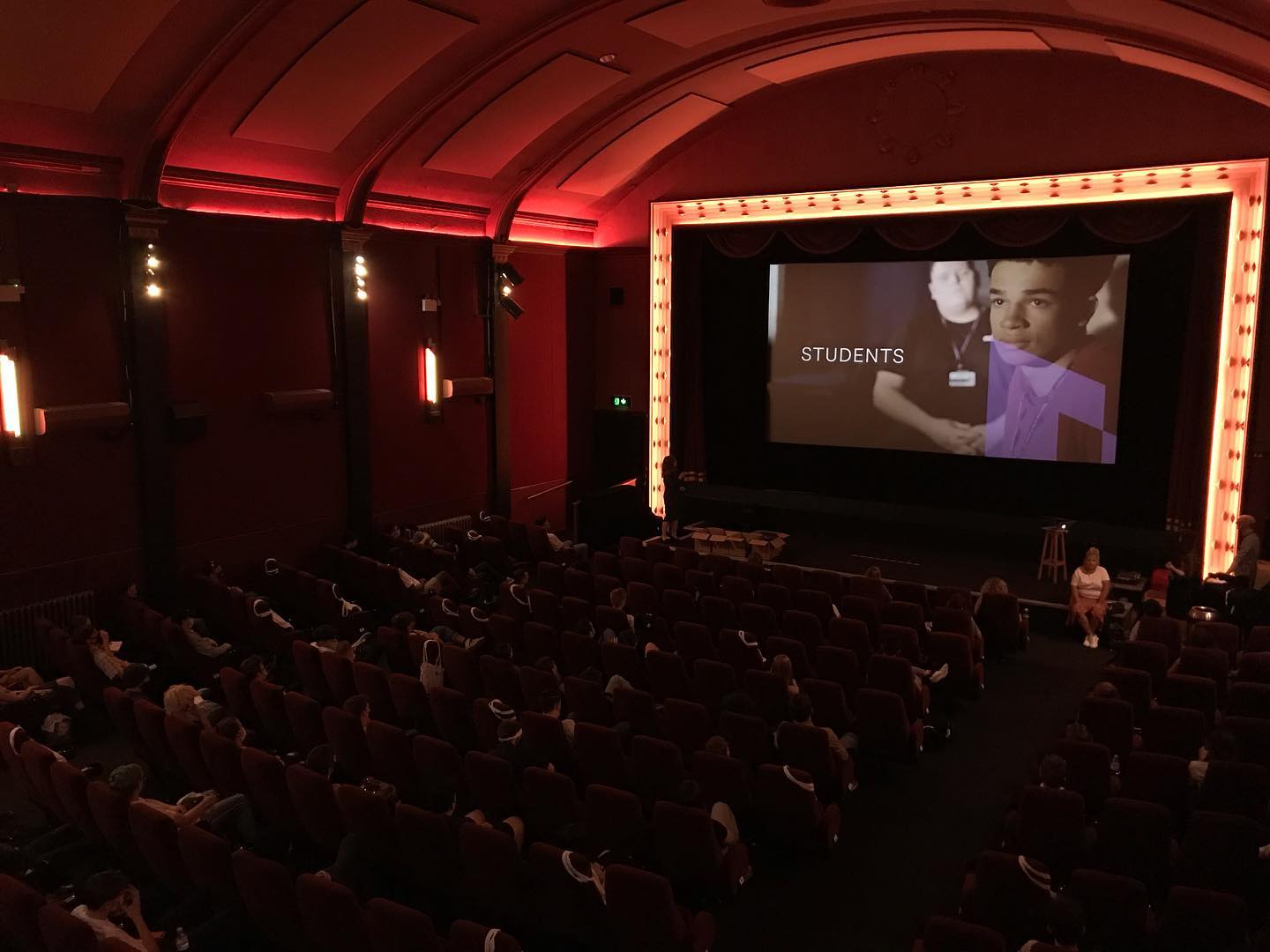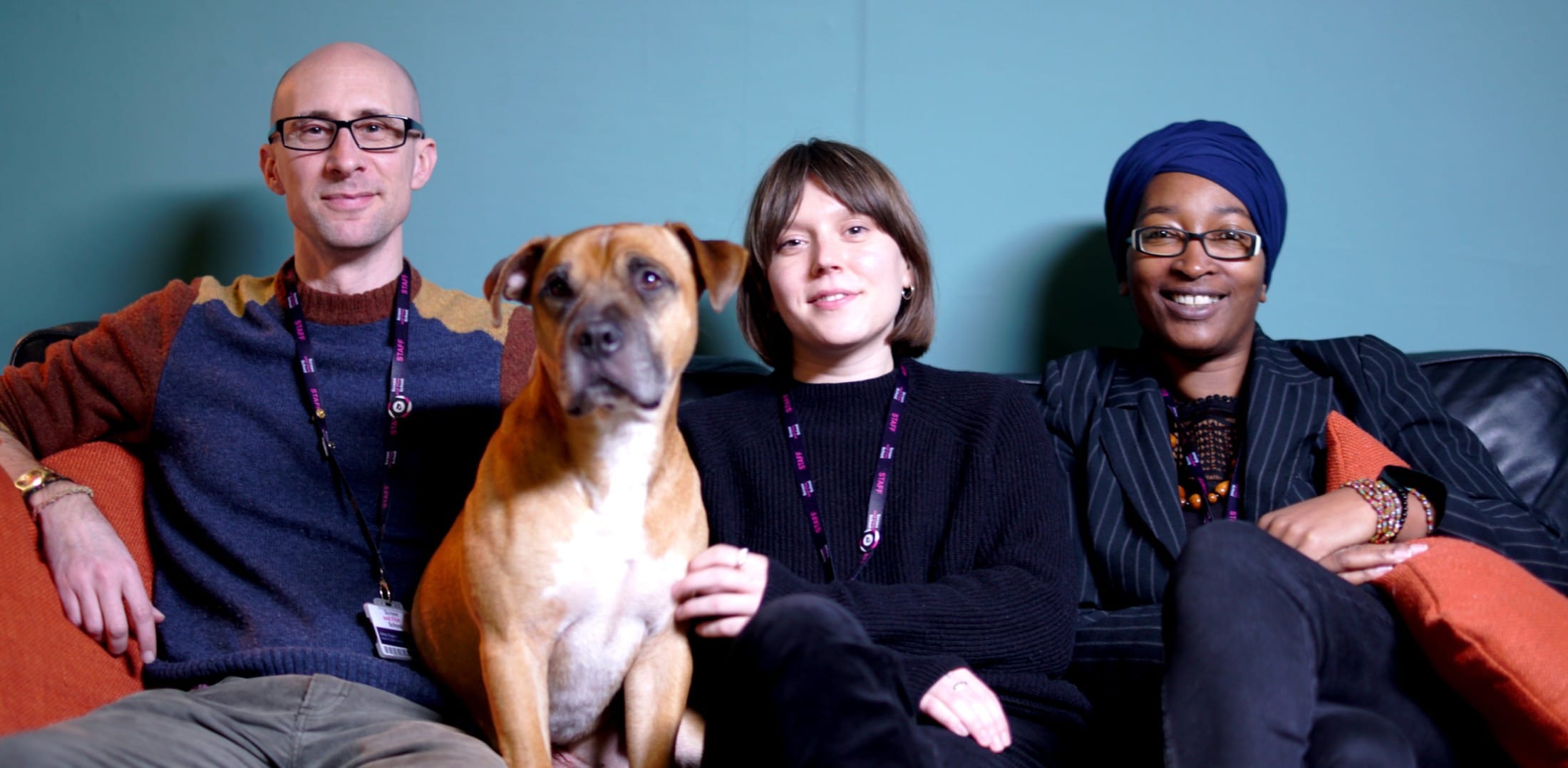Screen and Film School Brighton’s student blogger Zac Haydn-Jones takes a look at the story dominating the industry news cycle, and what it means for screenwriters.
Ext. Hollywood Street – Day
Outside a film studio in sunny LA, a large group of people in terribly bright, red, t-shirts chant.
They hold placards, on which are much wittier messages than you would expect from a protest. It’s a strike.
A Writers Strike.
The world of TV and Film can often be viewed from the outside as a place where everyone is raking it in. But that is not the case. While there are a fair few making pretty pennies, for the large majority it is a job like any other, and much like other jobs, there are problems with how workers are being compensated for their work.

On May 2nd 2023 the WGA (Writers Guild of America) called a strike after six weeks of failed negotiations with studios. The strike, which has now continued for just over a month, see’s writers attempting to properly define pay in the new landscape of streaming services and protect their jobs going forward. The WGA have put forward 15 proposals all together, some of which include:
- Viewer based residuals for streaming services, rewarding shows with greater viewership (residuals are used with broadcast TV and meant writers would earn a sum every time their show was broadcast, this is present in streamers but to a much lesser degree)
- Increased compensation for streaming features, the WGA has proposed films of 12 million or more budget be treated the same as a theatrical feature
- Pension and Health contributions if writing as an individual
- Writers to be paid weekly, 50% at the start with the remaining 50% being paid out weekly (this does not ask for an increase in writer pay, it simply aims to prevent the lump sum being held over the writer until the end of the project, in turn preventing unpaid rewrites and drafts. This would also allow writers to live more comfortably)
- Defined pay in Post-Production (writers are often present during post-production to write ADR or advise on what scenes can be cut with minimal story impact)
Also included are proposals to protect the writers room. The writer’s room has been a staple of TV writing for decades, it means that more writers are employed and the workload of a TV series is spread amongst them. It’s collaborative, makes good products and is something most writers opt for. However, studios have begun to slowly faze them out or opt instead for what has become known as the ‘mini-room’. This see’s less writers employed, and is leaving writers in smaller writer’s rooms, doing more work for the same pay.

There’s also a proposal that aims to regulate the use of AI. That’s right, AI, your dad’s favourite small talk starter since ‘Lovely weather we’re having’, AI is taking over. And that’s exactly the problem. Currently AI’s ability to write fiction is similar to one of the more inept monkeys on typewriters, while it looks like it could be right, if you look close enough it’s clearly a bad imitation. But AI is learning and evolving much quicker than anyone predicted and could soon become a threat to writers. It’s important then that the WGA get ahead of it, defining how it can be used now before it’s too late.
The strike is nowhere near done, with studios flat out rejecting seven of the proposals and the WGA not happy with how they have countered the other eight, most are predicting it will go on for three months. It’s important to note that what the WGA is proposing would cost studios just 0.054% of annual revenue on average*, barely even making a dent. With no end expected any time soon, The Screen Actors Guild also discussing a strike, and shows like ‘Andor’ and ‘The Rings of Power’ continuing without writers it’s safe to say Hollywood is going to be rocky for a while (more Rocky V than the original).
So, support writers, support artists, and expect much more reality TV in the year to come than anyone could ever want…
*Calculated using Figures from the WGA website
Are you interested in being a part of the new legacy at Screen and Film School Brighton?
Sign up to one of our Open Days:
Find out more information on our courses by clicking below:



